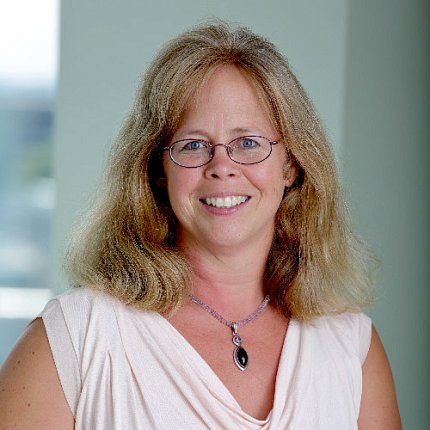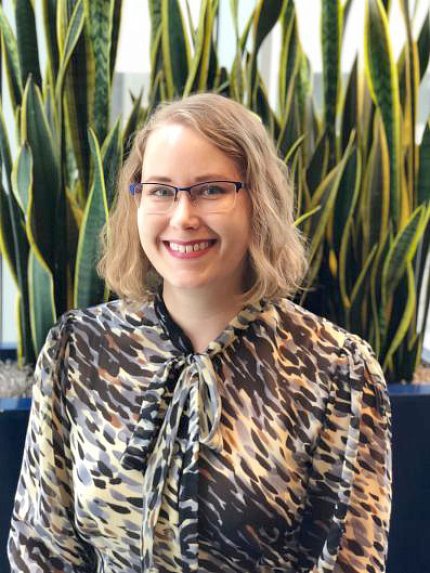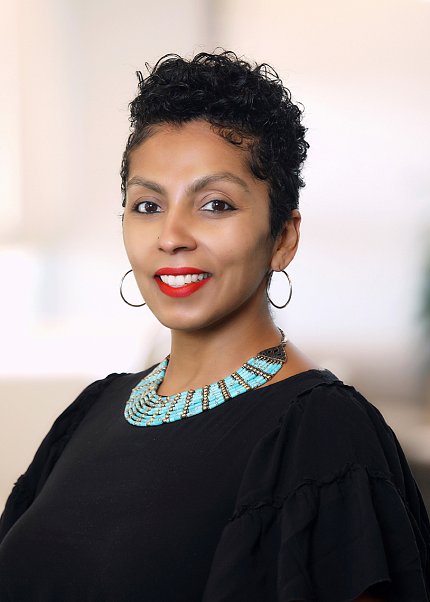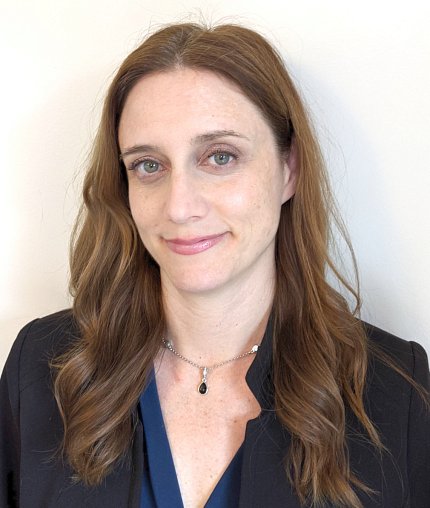Pass the Mic
NIH Podcaster Provides Glimpse of Community, Voices Within It
Podcasts are seemingly ubiquitous today, touching on nearly every facet of our lives. NIH is no stranger to this medium when communicating to the public, with several podcasts streaming today and others under development. How did these shows come about? Who are the voices you hear? What’s next?
NIH started dabbling in this concept when the platform was still in its infancy.
Pinn Point on Women’s Health, an early pioneer, released shows beginning in 2007. Dr. Vivian Pinn, then-director of NIH’s Office of Research on Women’s Health, hosted the podcast. As the concept was still fairly young then, podcasting was described at the time as “a relatively new method of distributing audio…information via the Internet to…portable media players on demand, so that it can be listened to at the user’s convenience.”

The idea that complex biomedical information could be distilled into simple conversations, able to be listened to anywhere, was a consideration for developing NIH’s All About Grants podcast (https://grants.nih.gov/news/virtual-learning/podcasts.htm). Megan Columbus, who directs communication in the Office of Extramural Research, launched the series in 2010 to demystify the NIH grants process through brief, lively and informal conversations.
“Podcasting allows us to bring a human voice and perspective, which can be so important when discussing topics that can be a bit dry, like policy,” she notes. “Done well, they can make listeners feel like they are privy to insider information.”
I embraced this philosophy for All About Grants after she passed the hosting duties on to me in 2018. I appreciate hearing how the show engages various audiences—as on Twitter, for example—learning what information was helpful and what else is needed. The reach of our show never ceases to amaze me, reiterating how broad NIH-funded research can be. Data from Spotify (one of three ways our content is distributed) notes listeners came from 21 countries in 2022 and is in the service provider’s top 15 percent of most followed podcasts.
Other podcasts also give honest, easy-to-understand and comprehensive insight into the world of NIH funding.

Drs. Lauren Ullrich and Marguerite Matthews are program officers turned NIH podcasters. They have experienced the grants process firsthand and know what it is like to try and get that initial NIH grant. That was an underlying reason they launched the Building Up the Nerve (https://ninds.buzzsprout.com/) podcast with the National Institute of Neurological Disorders and Stroke.
“We’ve been where our audience has been,” Ullrich says. “And it hasn’t been so long that I’ve forgotten how daunting that first NIH application can be. Even now, as an NIH employee, I encounter situations where policy or instructions aren’t clear, so of course it is challenging to applicants!” Matthews adds that “podcasting can be a great way for NINDS to be more approachable to the extramural research training community.”

Currently planning their fourth season, they say the conversations keep them going. “Whether it’s our NINDS colleagues, grantees or other subject-matter experts, there is always so much to gain from other’s wisdom and perspectives,” Matthews points out.
Talking about the grants process is one thing, but delving into NIH-supported research is another.
Diego Arenas, a communicator in the Office of Intramural Research, hosts and produces Speaking of Science (https://irp.nih.gov/podcast). Podcasting, he notes, allows OIR to “cast a wider net and capture different audiences who might like to listen on their commute or while they’re pipetting away in the lab.”
As the show discusses cutting-edge research in NIH labs, Arenas adds, “intramural investigators are leading the charge in all areas of biomedicine, and we really want to showcase that in a way that is accessible to everyone, in and out of NIH.”
With new topics coming in the near future and others being conceptualized, the medium is destined to continue growing at NIH.

The Office of Behavioral and Social Sciences Research, for one, anticipates releasing its podcast next fall. Dr. Beth Jaworski, a program administrator, will speak with researchers and community members, exploring the social issues that impact health and shape communities. She says she’s “thrilled for the opportunity to weave evidence with storytelling to share more about how behavioral and social sciences are critical to understanding health.”
And, because podcasters do not stop talking even when the mics are off, we gather regularly as a community of practice to share ideas, best practices and lessons learned to continue bringing the best shows possible to your earbuds.
To join NIH’s podcast community, email david.kosub@nih.gov.
The author, Dr. David Kosub, is senior advisor for legislative and media affairs, Office of Extramural Research, Office of the Director, NIH.
